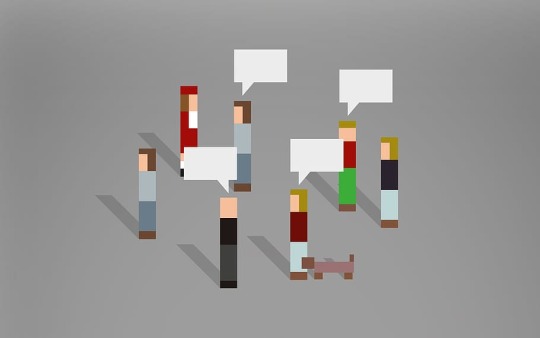Collaboration is hard! Collaboration is teamwork, discussing, participating, disagreeing, agreeing and getting there together. Not one by one. We all have lots of experience with group work. Most of the time group work equals cooperative work. We divide the tasks between the group members and go on with it. This is also how most of topic one and two worked for the ONL-group that I’m part of, and for most of the ONL-participants I believe.
Cooperation is easier. Give me a task and I’ll do it in time! It appears easier to do something yourself than to collaborating and agreeing with a group of people. Unless you are looking to get away with as little work as possible, just “hanging around”, also known as “social loafing” (according to Wikipedia, discovered by the French professor Max Ringelman).
Collaboration learning strategies takes longer time, especially online. This is recognized by Trentin in his article “Technology-enhanced learning and networked collaborative learning” (Trentin 2010). But it enhances learning, it promotes deeper learning since it requires that a discussion takes place, where one has to form one’s ideas in a way that is understandable for others.

Why is collaboration so hard then? What kind of skills does it take to make it work? This is what we ended up discussing in our group for topic 3. We exchanged stories about our own experiences with collaborating. Is it easier to get students to collaborate when the collaboration is part of their grade? The grading might motivate them, but it might not mean that the collaboration will be meaningful for them, and is it then a good learning activity? The collaboration needs to be meaningful in some way or another. The participants need to agree on a common goal for the collaboration. But are there specific skills needed for good collaboration? And what would they be? We really dug into the collaboration experience this time and ended up with agreeing on a list of skills (listed at the bottom of this post. For the process getting there, see: https://padlet.com/skippediduda/onl4topic3
The list of skills holds material for endless hours of discussion and further research. These are skills we hold in different degrees, and the collaboration process will of course differ from time to time depending on the group. How well do the group members know each other? What are their competencies? Is there someone willing to lead? Are they willing to be led? It also depends on the circumstances. Are they collaborating online? Is there a deadline? Does everyone feel ownership to the task? Are there language barriers? Cultural barriers? (see Hofstede on the importance of cultural awareness in cross cultural communication)
P.S If one should want to increase the complexity further, one could just make sure to not always collaborate with likeminded. Thomas Olsson at Tempere University suggest (in this article by Hyvärinen, 2019) that we should let algorithms decide the composition of the best suited team for a specific task, and that would probably not be consistent of just likeminded people. The more complex a team, the more crucial the facilitating skill I would say. That might very well be the most important skill.
Soft skills:
- cultural competence, perspective taking, respect, democratic, acceptance
- transparent, curious
- facilitating
- leadership and ability to be led
- positive attitude
- time management
- multitasking
- think critically
- be creative
- willingness to learn
- conflict management, solution focused approach, negotiation, right method for the situation
Hard skills:
- guidelines, agreement, contract
- choose tool according to task
- turn taking
